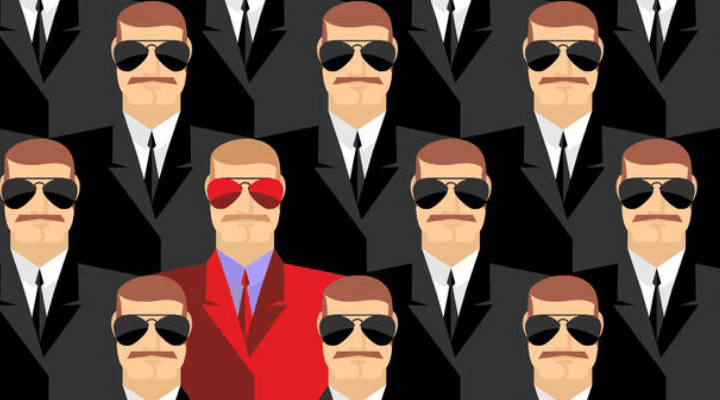As clearance holders, we know the secrets. Of course, enemy spies want our secrets, too. The mystery is how these spies find out, of course.
Do you help them? “Not on your life! I’m as patriotic as George Washington!” I can hear the outrage if I even suggest this. Of course, few Americans consciously betray national secrets. We do so in what might be called ‘an absence of mind.’
Let’s go back to those secrets you know. You know what needs to be protected, and yet we’ve probably all seen ‘mistakes’ happen. I’ve been to conferences where photographs showing hardware for sale were not ‘cleared for publication’. A picture of a missile could be taken against a background where another is set to launch. An alert spy would photograph your photo to study the background, which could reveal your test areas…and more.
Or how about your video data on a weapons test? Do you need to have the real flight time numbers running in the background? And who do we see in these pictures? Do you really want everyone to know you are working on otherwise protected data? Thoughts to consider, because your adversary is thinking about this all the time.
If you go to trade shows, who else is there? Are you really going to accept the free software and cables given out by friendly vendors? What spyware may lurk within? In discussions over drinks or at that great steak dinner with friendly fellow conventioneers, what topics are raised? Do you know enough to say, “I’m sorry, I can’t discuss that,” if necessary? For that matter, do you know what you can’t discuss?
If any of these questions seem to strike home, even a little, keep something simple in mind. You have a security manager whose job is to keep you up to speed on current threats. Hopefully you have Operations Security trainers who can tell you how to protect even your unclassified information. Why? unclassified bones can make a classified body.
And if, after a meeting with a new colleague, or an old friend, during a conference or trade show, something leaves you feeling uneasy, tell your counterintelligence representative. Just a little twist on if you see something, say something. Think about it. Discuss it with your security manager, just to know for sure.




